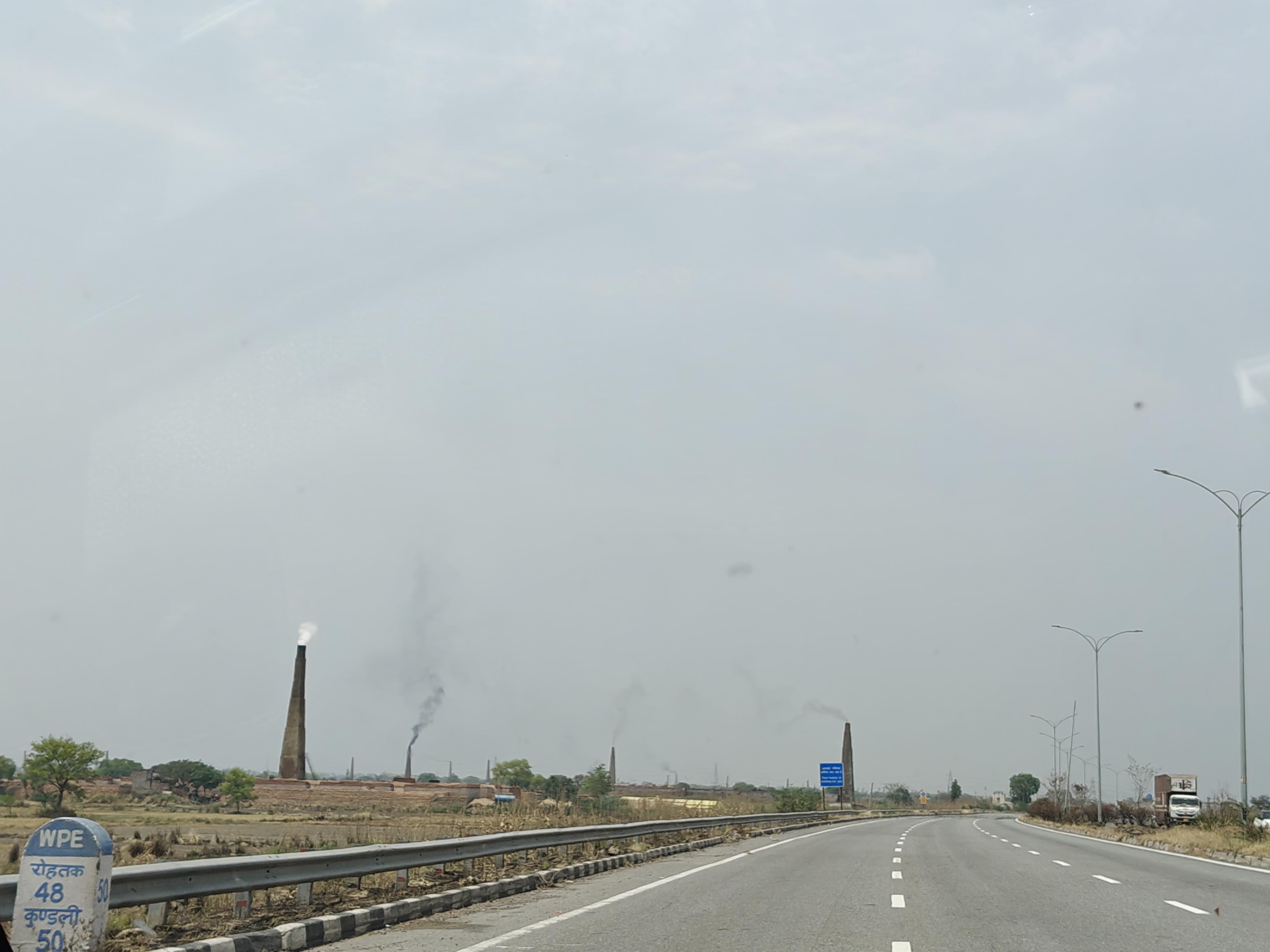As we drive along India's growing network of highways, it's easy to admire the smooth roads, clear skies, and open landscapes. But a closer look reveals a troubling scene — towering brick kilns lining the roadside, billowing smoke into the atmosphere. This isn't just an eyesore; it's a symbol of a deeper environmental crisis.
The Invisible Impact
Brick kilns, especially the traditional ones seen in many rural and semi-urban areas, burn coal, wood, and other unregulated fuels to bake bricks. The smoke released contains fine particulate matter (PM2.5 and PM10), carbon monoxide, sulphur dioxide, and black carbon — pollutants known to cause respiratory diseases, heart problems, and even premature death. The air pollution doesn't just stay near the kilns; it spreads to surrounding villages, towns, and cities, affecting millions.
A Threat to the Ecosystem
Besides the harm to human health, these emissions contribute significantly to global warming and climate change. Black carbon, for instance, absorbs heat and accelerates the melting of glaciers, especially in the Himalayas. The degradation of nearby soil and water sources further hampers agricultural productivity, creating a ripple effect of damage.
Why It Matters Now
With industrial growth and urban expansion, the demand for bricks has soared. While the construction sector booms, the cost paid by the environment is rarely discussed. The lack of stringent regulation, outdated kiln technology, and poor enforcement of emission norms make this a silent disaster in the making.
The Way Forward
Solutions do exist. Modern, eco-friendly alternatives like the Vertical Shaft Brick Kiln (VSBK) and zigzag kiln technology drastically reduce emissions and increase fuel efficiency. The use of fly ash bricks, made from industrial waste, is also a promising sustainable alternative. But awareness and implementation remain key challenges.
Conclusion: A Shared Responsibility
This image serves as a stark reminder: progress at the cost of the planet is not true progress. As citizens, we must stay informed, hold industries accountable, and push for cleaner technologies. Government bodies need to prioritize green alternatives and ensure strict compliance with pollution norms.
The road ahead must not just be smooth — it must be sustainable.

